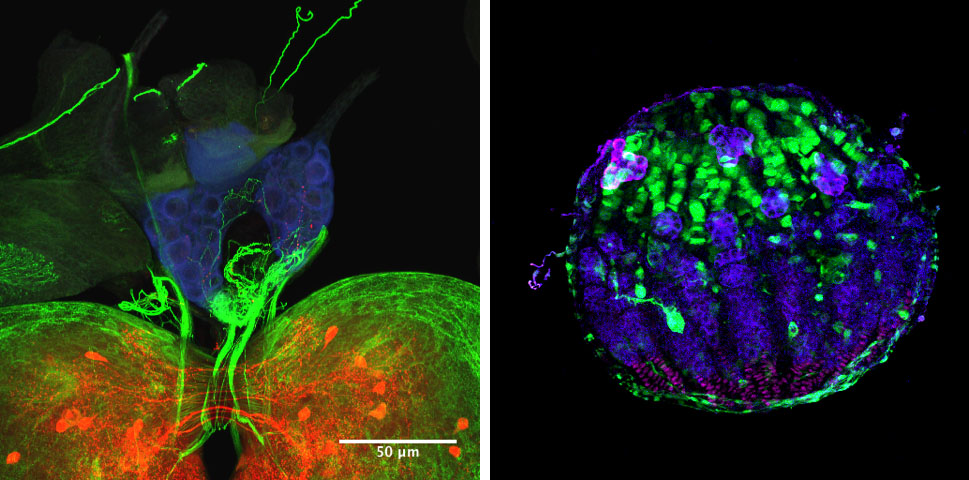Physiological genetics
 Niwa Project
Niwa Project
In the natural world, organisms live while being exposed to ever-changing environments. To adapt to such environmental changes, organisms develop the mechanism of homeostasis, which keeps their state constant, and also that of transistasis, which properly change themselves according to environmental changes. Recent progress in research has revealed the complicated signal cross-talks via nerves and hormones between various organs that make up an individual in the control of homeostasis and transistasis. It has also been suggested that the failure of this interorgan communication often leads to the onset of diseases. Our group aims to elucidate the interorgan communication and its significance in homeostasis and transistasis. Our main model organism is the fruit fly Drosophila melanogaster, the excellent model organism of genetics.
Research Project
Interorgan communication to regulate animal homeostasis and transistasis
Ryusuke Niwa, Ph.D. (Professor, TARA Center)
Our current research focuses include:
1) Mechanism of stem cell proliferation and maintenance
2) Metabolic mechanism of nutrition and energy
3) Interaction between parasitic bees and host insects
4) Mechanism of insect steroid hormone biosynthesis
5) Mechanism of reproductive dormancy induced by cold-temperature stimulus
6) Chemical biology of insecticides based on basic knowledge of insect development and physiology
